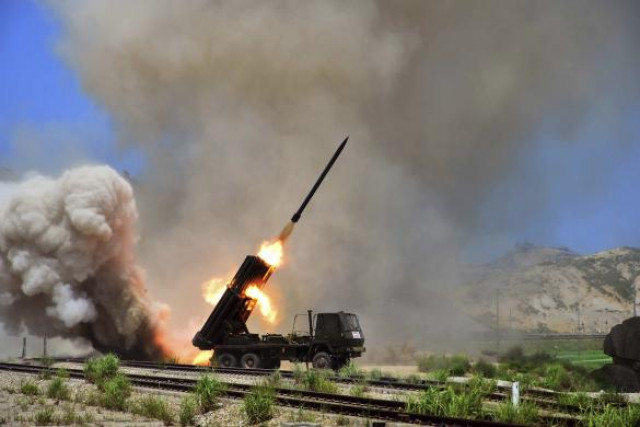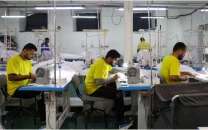China understands South Korean need for security, still opposes missiles
China worries the system's powerful radar can penetrate its territory and has objected to the deployment

Tensions have risen between the two countries in the wake of the North Korea's missile tests. PHOTO: REUTERS
China has repeatedly expressed opposition to South Korea's planned deployment later this year of the US Terminal High Altitude Area Defence (THAAD) system, which Seoul and Washington say is needed to defend against North Korea.
China worries the system's powerful radar can penetrate its territory and has objected to the deployment. Meeting on Saturday on the sidelines of the Munich Security Conference, Yi repeated to South Korea's Foreign Minister Yun Byung-se China's opposition to THAAD, China's Foreign Ministry said in a statement on Sunday.
Yi stressed that one country's security should not be founded on the basis of harming another country's security.
He added that "China understands South Korea's need to protect its own security, and at the same time South Korea should respect China's reasonable position."
Yun Fu Ying, the chairwoman of the foreign affairs committee in the Chinese National People's Congress, told a panel discussion at the Munich conference that China could not understand Washington's decision to deploy the system to South Korea.
"It is like being stabbed by your friends," she said.
Ying added that the system would not increase South Korea's security anyway.
Missile defence tension: China expels 32 South Korea missionaries
But Byung-se told the panel the system was needed to augment Seoul's existing Patriot missile defence system and guard against the kind of high-arc shot used by North Korea in its last test.
"What we need is multiple layers of defence ... THAAD is really relevant," he said.
"We don't pose any threat to China,'' he added.
Byung-se said that North Korea launched two nuclear tests and 24 missiles last year alone and was nearing the final stage of nuclear weaponisation.
"In our analysis, the tipping point may be only a few years away," he told conference participants.
China military urges restraint from US-South Korea navy drills
"It's a ticking time bomb," Yi told Byung-so that efforts to seek peace with North Korea should not be abandoned, the ministry said.
"All parties, at the same time as strictly enforcing UN Security Council resolutions should proactively look for breakthrough points to resume negotiations, to break the negative cycle of the nuclear issue on the peninsula," Yi said.



















COMMENTS
Comments are moderated and generally will be posted if they are on-topic and not abusive.
For more information, please see our Comments FAQ